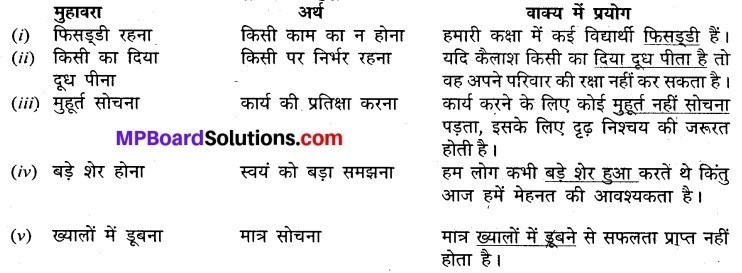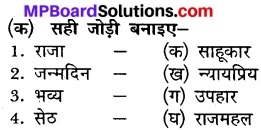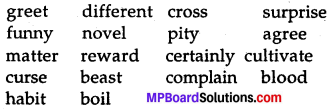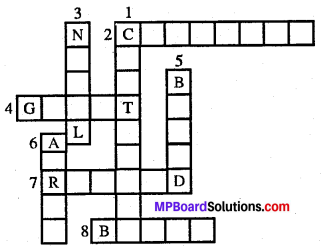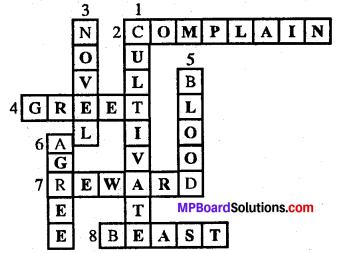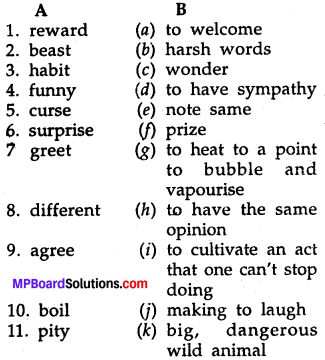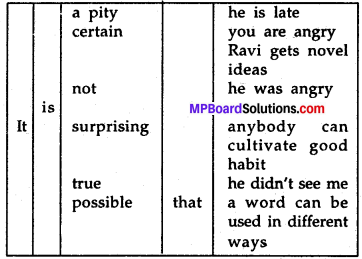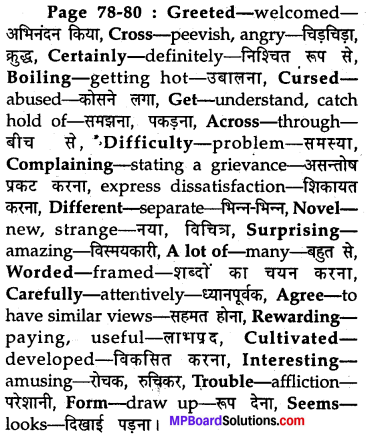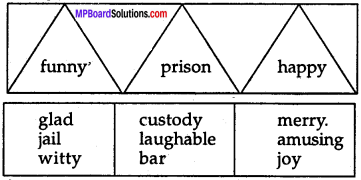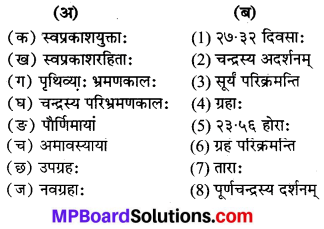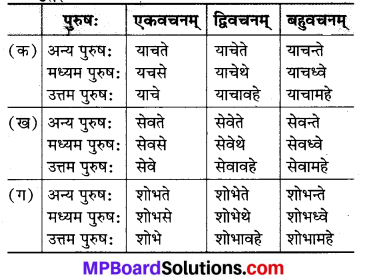Get Updated MP Board Solutions for Class 7 Special English Solutions Chapter 2 A New Idea of Good Manners Questions and Answers in PDF Format and download them free of cost. These are provided as per the latest exam pattern and syllabus. Access the topics of Chapter wise and communication skills, grammer part through the direct links available depending on the need. You can Download MP Board Class 7 English Solutions and can score highest grade in examination. Clear all your queries on the Mp Board Solutions for Class 7 English Chapter 2 A New Idea of Good Manners Questions and Answers Subject by using the Madhya Pradesh State Board Solutions for existing.
MP Board Class 7th Special English Solutions Chapter 2 A New Idea of Good Manners
If you are eager to know about the Madhya Pradesh State Board Solutions for Class 7 English you will find all of them here. You can identify the knowledge gap using these MP Board Solutions for English PDF and plan accordingly. Don’t worry about the accuracy as they are given after extensive research by people having subject knowledge along side from the latest English Syllabus.
A New Idea of Good Manners Text Book Exercise
Comprehension
A. Answer the questions given below:
Mp Board Class 7th English Chapter 2 Question 1.
Where did Ravi spend his summer vacation?
Answer:
Ravi spent his summer vacation at a village.
Class 7 English Chapter 2 A New Idea Of Good Manners MP Board Question 2.
Why did Ravi and Anand not know Ashok?
Answer:
Ravi and Anand did not know Ashok because Ashok had newly joined the school.
A New Idea Of Good Manners MP Board Question 3.
How did Ashok learn to use a dictionary?
Answer:
Ashok learnt to use a dictionary when his grandfather taught him.
Class 7 English Chapter 2 Mp Board Question 4.
How does a dictionary help us?
Answer:
A dictionary helps us in looking up the correct spellings of the words.
Class 7 English Chapter 2 Question Answer Question 5.
Why does Anand not look up the meaning of all the new words in a dictionary?
Answer:
Whenever Anand looks up the new words in a dictionary, quite often he feels very lazy. He decides not to look up all the new words in a dictionary.
Mp Board Solution Class 7th English Question 6.
Why must we avoid making mistakes?
Answer:
We must avoid making mistakes because our mistakes make the readers unhappy. Besides, It shows our laziness and it is also known as bad manners.
B. Choose the right words from those given after each statement:
(i) The School has opened………….
(a) after winter volation.
(b) after a holiday.
(c) after summer vacation.
(d) after a week.
Answer:
(c) after summer vacation.
(ii) Ashok is a stranger because………….
(a) he is a new student.
(b) he is well known to all.
(c) he is an old student.
(d) he is an intelligent student.
Answer:
(a) he is a new student.
(iii) The Three boys joined and ……………
(a) played football.
(b) visited the school library.
(c) went to the garden of the school.
(d) went inside the classroom.
Answer:
(b) visited the school library.
(iv) Ravi spent his summer vacation …………
(a) at a village
(b) in the town
(c) at home
(d) at his friend’s home.
Answer:
(a) at a village
(v) Ashok joined…………..
(a) class X
(b) Class IX
(c) class VII
(d) class VIII
Answer:
(c) class VII
Word Power
Look at the phrases given below:
(a) a happy man – an unhappy man (A man who is not happy)
(b) a kind woman – an unkind woman (A woman who is not kind)
‘un’ has the meaning of ‘not’
Now change the meaning of the following phrases by adding ‘un’ (be careful of changing ‘a’ to ‘an’)
Answer:
a pleasant journey – An unpleasant journey
a popular boy – An unpopular boy
a necessary thing – An unnecessary thing
a lawful act – An unlawful act
a just decision – An unjust decision
a common animal – An uncommon animal
an interesting story – an uninteresting story
an important event – An unimportant event
an equal opportunity – An unequal opportunity
be usual happening – An unusual happening
Grammar in Use
Write sentences from each of the following tables:
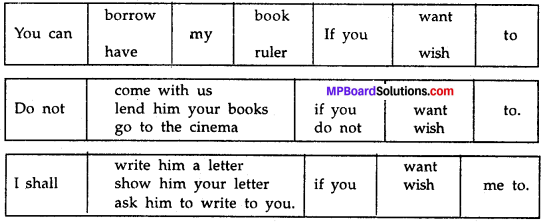
Answer:
1. (i) you can borrow my book if you want to.
(ii) you can have my book if you want to.
(iii) you can borrow my ruler if you want to.
(iv) you can have my ruler if you want to.
(v) you can have my book if you wish to.
2. (i) Do not come with us if you do not want to.
(ii) Do not lend him your books if you do not want to.
(iii) Do not go to the cinema if you do not wish to.
(iv)Do not come with us if you do not wish to.
(v) Do not lend him your books if l you do not wish to.
3. (i) I shall write him a letter if you I want me to.
(ii) I shall write him a letter if you 1 wish me to.
(iii) I shall show him your letter if you want me to.
(iv) I shall ask him to write to you if you want me to.
(v) I shall ask him to write to you if you wish me to.
Let’s Talk
Ask your friend to complete the sentences given below by using ‘if you want to’/ ‘if you do not want to’/’if you want him to’
Example:
Ravi will take your letter to the post office.
Ravi will take your letter to the post office if you want him to.
Class 7 English Chapter 2 MP Board Question 1.
Do not go to the cinema………….
Answer:
Do not go to the cinema if you do not want to.
Question 2.
Please have my bicycle…………
Answer:
Please have my cycle if you want to.
Question 3.
Mr. Kumar will lend you a dictionary………….
Answer:
Mr. Kumar will lend you a dictionary if you want him to.
Question 4.
Do not lend your books to other people………….
Answer:
Do not lend your books to other people if you don’t want to.
Question 5.
My father will take you in our car to Agra……………
Answer:
My father will take you in our car to Agra if you want to.
Let’s Write
Write ten sentences on any one of the topics given below:
Question 1.
How you spent your vacation.
Answer:
How I Spent the Summer Vacation:
Our school was closed on 14th of May for the summer vacation. I packed my luggage and caught the first train for Mathura. I reached my native village in the evening. My friends came to know that I had reached there. They came to meet me. We kept talking till midnight. I spent about a week there. We went out for a morning walk and enjoyed ourselves. After a week, I received a telegram from my elder sister. She had asked me to come to Agra.
I reached Agra. I spent many days visiting all the historical places around Agra. I saw the Taj Mahal every night. I also visited Akbar’s Fort. I often used to bathe in the holy water of the Jamuna. I stayed there for about three weeks.
I returned to my house in the middle of june. After a few days I paid a visit to my maternal grandfather. I received a warm reception from my maternal grandmother, maternal uncle and maternal aunt. My cousins were wild with joy at my sight. I made many friends there. We would play many rural games. We could take bath in cold water of the canal. I studied every morning. My breakfast consisted of stale chapaties, butter and butter-milk. After staying there for two weeks I returned home, I finished my home work. Our school opened on 8th july and I reached my school.
Vacation – लम्बा अवकाश, Luggage – सामान, Native – जन्म से सम्बन्धित, Often – प्राय, Holy – पवित्र, Reception – स्वागत, Rural – ग्रामीण, Canal – नहर, Stale – बासी
Question 2.
The first day of your school after the vacation.
Answer:
For self attempt.
Let’s Do It
Interview your class mates and complete the following table. The following questions can be asked.
1. What’s your name?
2. What books do you like to read?
3. What’s your hobby?
Answer:
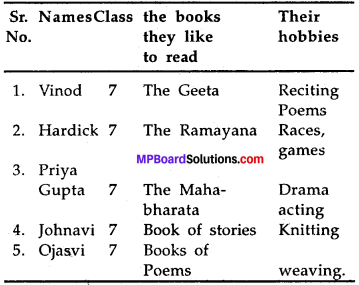
New Idea of Good Manners Word Meanings
Page: Vacation – leave – अवकाश, Almost – nearly – लगभग, Stranger – unknown person – अजनबी व्यक्ति, Just – not long ago – थोड़े समय पहले, Believe – think – विचार\विशवास करना, Joined – admitted – प्रवेश पाया, Excuse – Pardon – क्षमा करना, Interesting – amusing – रोचक, A bit – a little – थोड़ा सा, Dull – tasteless – निरस, Perhaps – probably – शायद, Very often – usually – प्राय, Lazy – idle – सुस्त, Suppose – imagine – कल्पना करो, Careful – attentive – सावधान, Reasons – causes – कारण, Always – ever – सदा
We believe the information shared regarding MP Board Solutions for Class 7 English Chapter 2 A New Idea of Good Manners Questions and Answers as far as our knowledge is concerned is true and reliable. In case of any queries or suggestions do leave us your feedback and our team will guide you at soonest possibility. Bookmark our site to avail latest updates on several state board Solutions at your fingertips.
